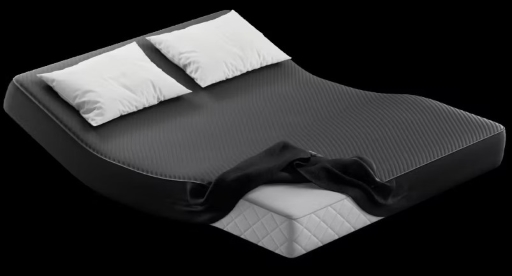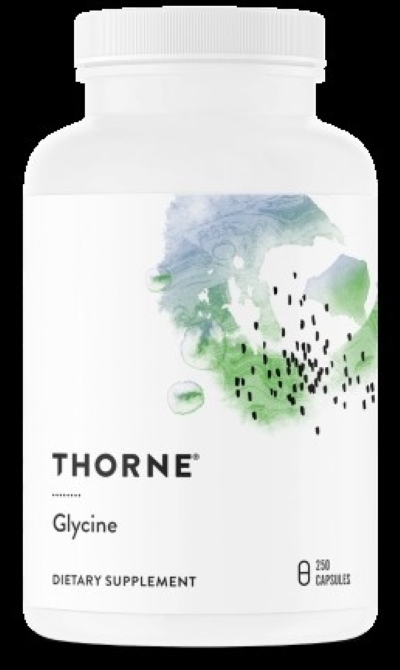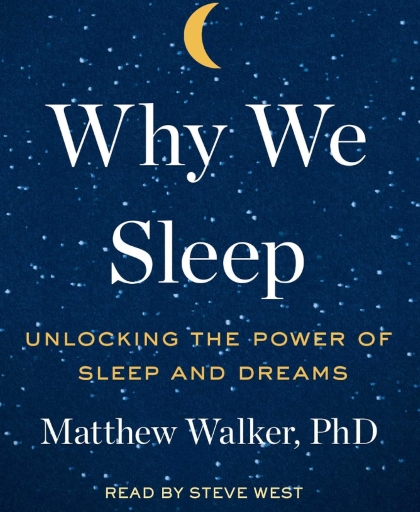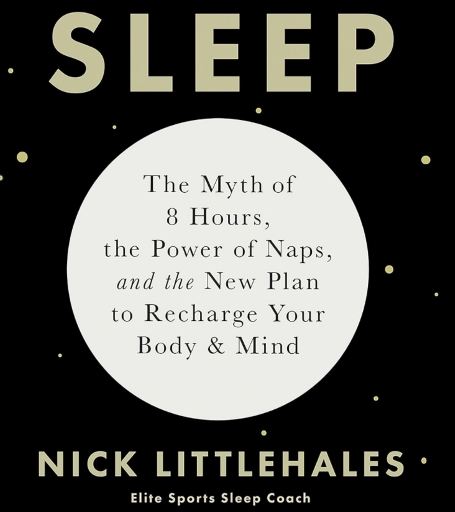Unlocking Better Sleep – Everything I’ve Learned So Far
Sleep is the new super power wellness hack and its been getting a lot of press lately! In today’s article I want to share what has worked for me and resources for learning more so you can upgrade your own sleep.
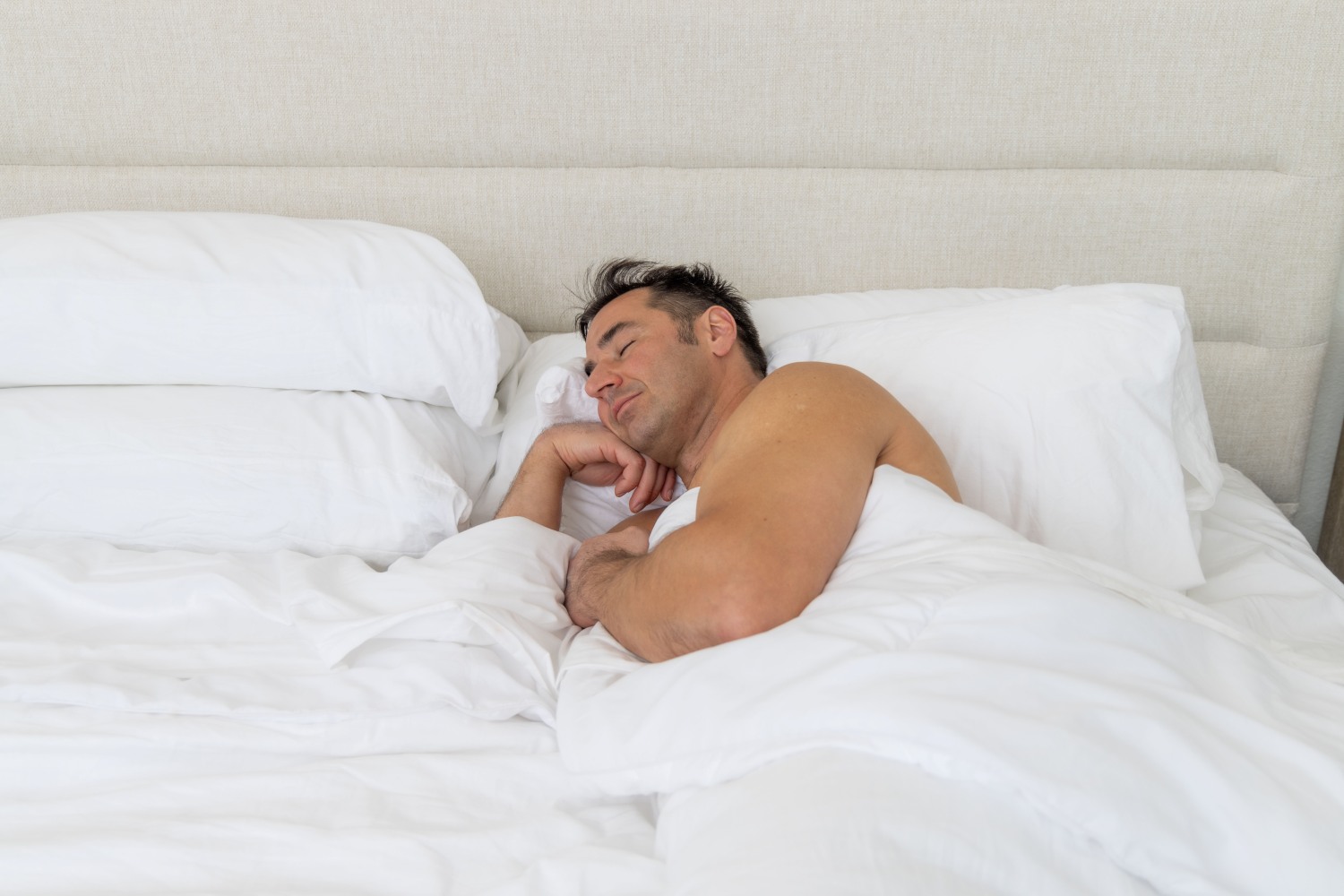
The Importance of Sleep and How to Improve It
First, the case for why to care about sleep. It wasn’t too long ago that getting the most done with the least amount of sleep was a humble brag. What’s come to the forefront in recent years is how much mental and physical damage is done when we don’t sleep well. Lack of sleep causes :
- Severe health issues over the long term, including heart disease and diabetes.
- Weight gain
- Weakened immune system.
- Difficulty concentrating
- Cognitive impairments affecting decision-making and productivity
- Decreased sexual performance
- Daytime fatigue and sleepiness
- Mood changes, such as irritability and depression
There’s downstream affect for businesses, too. Inadequate sleep results in reduced productivity, higher absenteeism, and increased errors. The estimated economic burden of undiagnosed sleep apnea in the U.S. is a staggering $149.6 billion.
Bottom line : You should care about good sleep because it makes life more enjoyable for you and those you care about, plus you’ll live a longer and healthier life.
Types of Sleep Issues and Causes
If you’re still reading, you’re probably on board that you should care about sleep and you’re curious about how to improve it. First of all, let’s break sleep problems into two buckets :
- Trouble Falling Asleep: This is typically linked to anxiety, stress, and poor sleep hygiene.
- Trouble Staying Asleep: This is often associated with sleep disorders like sleep apnea. 26% of adults aged 30 to 70 suffering from sleep apnea (sleep apnea is the medical way to describe disordered breathing during sleep.)
Both types of sleep problems can be caused by one or more of the following :
- Stress and Anxiety: Major disruptors of sleep patterns.
- Irregular Sleep Schedules: Leads to decreased sleep quality.
- Uncomfortable or Poorly Configured Sleep Environments: Affects restfulness.
- Medical Conditions. Examples include insomnia and sleep apnea (essentially, periods of holding your breath / not breathing while asleep ranging from a couple seconds to longer.)
- Lifestyle Factors: These include diet and physical activity.
Lifestyle Changes – The First Line of Defense Treatments for Sleep Problems
Lifestyle changes are the first line of defense for improving sleep quality. Around 35% of sleep issues can be improved through lifestyle changes alone. Even if lifestyle changes don’t completely resolve your sleep issues, there’s nothing but upside for making these lifestyle changes. The list of possible lifestyle and environment changes are long. I’ll focus on the ones that made a big difference for me and some honorable mentions that are easy to do, too.
With any long list of lifestyle changes, your best bet is to tackle one a time. Once you build consistency with a certain habit, you can tackle the next one. This process takes longer to implement but also works best in most cases for a lasting shift.
Here are the specific lifestyle changes that made a huge difference for me, roughly in the order I implemented them.
- Consistent wake-up time. No matter what time I went to sleep, I’d wake up at the same time. This sucks on the nights I struggle to fall asleep because it means not getting enough sleep on those nights, but eventually my body clock adjusted to a consistent wake-up time.
- Dark room. Whatever is reasonably possible. For me this was curtains over all windows (later upgrading to full blackout curtains), doors closed, all lights off, and no light from electronics like phones, digital clocks, etc.
- Cold sleeping environment. Different temperatures work for different people but for me, a 68 degree room (or colder) + warm blankets created the best environment.
- Most luxurious bedding I could find and afford. This evolved over time for me as budget and time allowed. Ultimately I opted for a Saatva mattress, Frette linens, and down pillows. Whatever makes you feel comfortable is perfect.
- No alcohol within a few hours before bed. I feel like I’m in the minority of people who both care about fitness and health and also still enjoy good wine + tequila. That said, from mid-30s and older, I noticed that drinking before bed time caused me to fall asleep faster but usually meant I was waking up in the middle of the night and not feeling rested in the morning.
- No caffeine from early afternoon onwards. This one has had less impact on me than I would have expected. Still, skipping stimulants (caffeine) after early afternoon seems like a no brainer for improving sleep. When I get sleepy mid-afternoon I opt for a quick cat nap (20 – 30 minutes), a walk, or a workout.
- No TV in bedroom. Invariably, watching TV before sleep kept me up later than I wanted, caused me to wake up in the middle of the night because I’d fall asleep with the TV still on, and made me feel less rested in the morning.
- Mattress temperature regulation. Even though this was one of the last changes I made to improve my sleep, it’s been one of the most impactful. AC can only do so much to regulate your sleeping temperature. I use the Eight Sleep mattress cover to keep me at a perfect temperature while I sleep. Plus, its one of the few data trackers I use regularly because its non-intrusive and helps keep me accountable to thinking about good sleep.
- Heat exposure an hour before sleep. Whether its sauna, a steam shower, or a hot bath, this is a magic button for improving sleep. Counter-intuitively, by being in the heat, you actually cool your bodies internal temperature slightly which promotes sleep. I don’t do heat exposure every evening, but for nights when I feel like I’ll have issues falling asleep e.g. a stressful day, I add this in and get great results.
Other lifestyle changes to add in :
- Daily workouts / walks. These have been part of my routine for as long as I can remember. They improve just about everything health wise, not just sleep. Move this near the top of your list.
- Ample water. Not having enough water affects everything including sleep quality. This is an easy lifestyle adjustment that pays off for everything, not just better sleep.
- Healthy diet. Like daily workouts, healthy diet just makes everything better. More on healthy diet in another post.
- Not eating late. The work of digesting a big meal can impact your sleep. This is not a habit I’ve successfully dialed in – busy days can make timing my eating hard.
- Early morning light. Light is a trigger to your body to wake up and effectively starts an internal timer to prepare it for sleep at the end of the day. The goal is to view natural sun light as early as possible in the day. This is not a habit I’ve successfully dialed in.
- Breathwork: The 4-7-8 breathing technique, developed by Dr. Andrew Weil, promotes relaxation and stress reduction.
- Meditation / journaling. Any tool that allows you to relax your mind helps. I view these tools as practices you get better at over time through practice. Managing stress & anxiety through mindset techniques is a deep topic. More on that in future posts.
- Establish a Consistent Sleep Schedule: Go to bed and wake up at the same time daily.
- Limit Screen Time: Avoid electronics at least an hour before bedtime.
- Use a sleep tracker. I’m a big fan of Eight Sleep (see above) but other sleep trackers can be valuable as well e.g. Oura Ring, Apple Watch, etc. Sleep tracking devices can help monitor sleep patterns, though they should be used as a guideline rather than an absolute measure.
- Avoid long afternoon naps. 20 – 30 minutes is fine. 1 hour plus can impact the build-up of “sleep pressure” that your body needs to fall asleep at night.
Natural Sleep Cocktails and Supplements
Sleep “cocktails” made from safe, natural ingredients can help promote sleep. Here are a few examples – you’ll see similarities in ingredients.
- From Dr. Max Kerr. Take 1 hour before sleep :
- Glycine (3000 mg)
- Magnesium glycinate (400 mg)
- Theanine (200 mg – 400 mg)
- From Dr. Nick Barringer. Take 1 hour before sleep.
- 10 grams of high glycemic CHO
- 40 grams of alpha-lactalbumin
- 655 mg theanine
- 53 mcg 5’AMP
- 600 mg of valerian
- Read more in this study : Halson, S. L., Shaw, G., Versey, N., Miller, D. J., Sargent, C., Roach, G. D., … & Baar, K. (2020). Optimization and Validation of a Nutritional Intervention to Enhance Sleep Quality and Quantity. Nutrients, 12(9), 2579.
- From Dr. Andrew Huberman
- Magnesium Threonate: 200-400mg 2-3 hours before sleep
- L-Theanine: 200-400mg
- Apigenin: 50mg
- Glycine: 2 gram (every 3rd or 4th night)
- GABA: 100 mg (every 3rd or 4th night)
Sleep Studies: A Path to Understanding Your Sleep
Before or during making lifestyle changes, consider a sleep study. These sound expensive and intrusive but they can actually be done at home and either covered by insurance or paid in cash with an average cost around $300. Sleep studies are vital for diagnosing various sleep disorders, especially for those with persistent sleep issues despite lifestyle modifications.
One good option for getting a sleep test is Sleeptest.com
Treatments for Sleep Problems – What to Try Next
If lifestyle changes alone don’t do the trick, there are other solutions available. A sleep study will help pinpoint what kind of sleep issues you’re having, which can then lead a doctor or other sleep specialist to make recommendations, including :
- Cognitive Behavioral Therapy for Insomnia (CBT-I): Addresses thought patterns that affect sleep.
- CPAP Machines: CPAP machines involve a mask that is worn while sleeping that regulates the flow of oxygen into your body. They are highly effective but because they are cumbersome, compliance rates on usage are around 40%.
- Custom Oral Devices. These are devices that you wear while sleeping only. They are purpose designed and fitted to your unique anatomy and needs and open your airways while sleeping. Imagine a retainer that you wear only while sleeping. They are effective with a 75% success rate.
- Medical Interventions. There are various medical interventions being developed. Long term usage data is lacking because they are new, but early results are promising. One interesting option is https://www.inspiresleep.com/
- Medications: Medications are available to manage insomnia and other conditions. If you know me you know I view these as a last resort when all other options have been tried and exhausted.
The Future of Sleep Health
The sleep health industry is evolving with advancements in technology and personalized medicine. Notable trends include:
- AI-driven sleep aids and wearable devices that monitor sleep patterns.
- Increased investment in sleep research to understand sleep disorders better.
- A growing recognition of the link between mental health and sleep quality.
Conclusion
Did any of this resonate for you? Message to let me know what the biggest sleep game changer has been for you, or what your biggest unresolved challenge is.
Resources
- Dr. Max Kerr on LinkedIn and Instagram. Dr. Max Kerr, owner of Sleep Better Austin, emphasizes the importance of sleep and offers strategies to enhance it.
- Dr. Nick Barringer – Instagram
- Dr. William Wallace – Instagram

